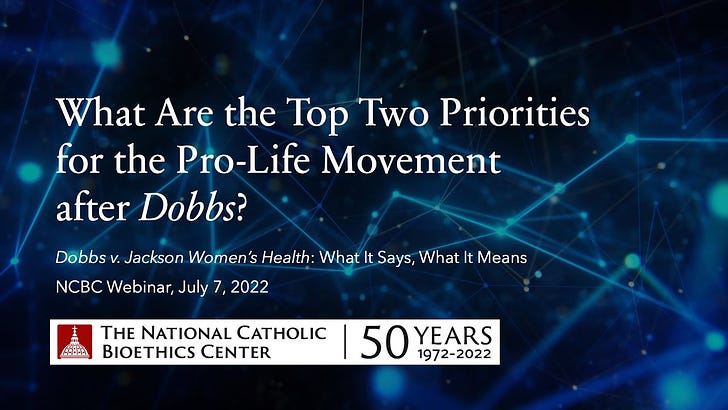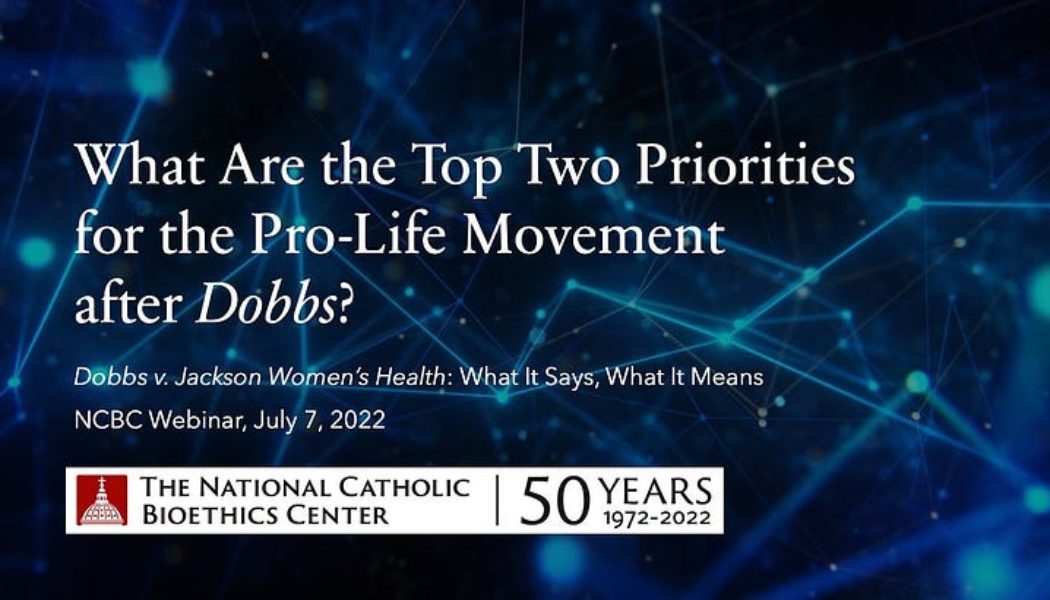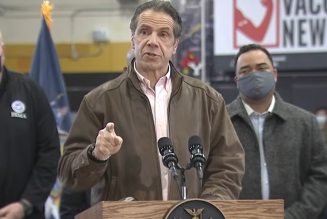
Soon after becoming president, Democrat Jimmy Carter signed the Hyde Amendment into law — barring the use of federal funds for abortions, except in cases of rape or incest, or when the life of the mother is at stake.
When the Joe Biden-Kamala Harris administration attempted to kill the Hyde Amendment, a small — but symbolic — group of Democrats appealed to the elderly Carter for help.
“We are asking President Jimmy Carter (who signed Hyde into law) to please help us in saving it. We are so grateful for your humanitarian work and for everything you did for women and families in office,” said a tweet posted Monday, March 22, by Democrats for Life of America (DFLA).
“America needs you again, Mr. President. Help us save Hyde,” the group added.
Battles over the Hyde Amendment, and other issues linking tax dollars going to abortion providers, have continued, even after the U.S. Supreme Court struck down Roe v. Wade in its Dobbs v. Jackson Women’s Health Organization decision in 2022. That reality played a big role in this week’s “Crossroads” podcast, which focused on a complex, fair-minded Emma Green feature in The New Yorker: “The New Pro-Life Playbook — Under Trump, a new vision of conservative family policy is ascendant.”
Hold that thought, because we will come back to it.
The Dobbs decision, of course, pushed the battles over abortion back into state legislatures and ballot initiatives, where those who favor strict restrictions on abortion have won some battles and lost many others (even in states like Kansas). The legal landscape has become more complex, with activists on left and right facing painful compromises that challenge their core beliefs. During the 2024 campaign, former President Donald Trump made it clear that he supported Dobbs, but would not back a national law to ban abortion.
That move infuriated many pro-life leaders. At the same time, some abortion opponents quickly moved to defend the movement’s victories in the past, while pushing to see what policies the next Trump administration would consider supporting, when push comes to shove.
The Southern Baptist Convention’s Ethics & Religious Liberty Commission, for example, quickly sent a letter to the Trump transition team underlining five policies it wanted the White House to stress in the first 100 days of the new administration.
In a flashback to the Hyde Amendment and similar battles, the first two items were: “Reinforce policies that ensure the government does not fund abortion” and “Withhold government funding for abortion providers, domestically and abroad.” The final request urged the Trump team to revisit another controversial issue: “Reverse the Biden administration’s actions that expanded “access” to the abortion pill.”
These are the obvious post-Dobbs moves by activists in a humbled pro-life movement. The New Yorker feature focused most of its attention on related issues — populist efforts to create a more family friendly American marketplace, period.
This feature by religion-beat veteran Emma Green is a must read. While activists on both sides might debate some details (gender dysphoria language, for example), the key is that the feature turns an accurate spotlight on strengths and fault lines in the Trump 2.0 coalition.
A key player in the move toward a populist approach, with an emphasis on building and supporting American families, is Vice President-elect J.D. Vance.
Let’s start with this summary of the post-Dobbs landscape:
“The thing I’m worried about is the apathy on our side,” John Seago, the president of Texas Right to Life, told me. “The false narrative is that red states have stopped abortion. Some Republican legislators have leaned into that, patting themselves on the back.” In 2023, there were more abortions reported in the U.S. than there had been in a decade, with many women ordering abortion pills online, or travelling to nearby states to terminate their pregnancies. For half a century, Seago told me, the pro-life movement “had a very clear target,” which was to overturn Roe. “Now the target is more nebulous. We’re kind of in the early days of what the pro-life movement was after Roe. We knew there was work to be done, but we didn’t know how to get there.”
Social conservatives within Trump’s coalition have been workshopping a new playbook. They have a much broader social-policy agenda in mind for his next term: overhauling the way Republicans think and talk about family. The campaign offered a preview during Vance’s debate with the Minnesota governor Tim Walz. Vance pitched a sunny vision for families: parents should be able to choose whether to stay home with their kids, send them to day care, or make another arrangement, like getting help from their church, all with government support.
For those paying close attention, some of that language describes issues that harken back to President George W. Bush and “Compassionate Conservatism” efforts to allow faith-based groups to play larger roles in government efforts to help needy and blue-collar families. These efforts were controversial then and would certainly be controversial now.
This leads me to some key material in which Green tunes into the debates swirling around The Heritage Foundation, a cornerstone of establishment GOP power inside the D.C. Beltway. This is long, but essential:
These are fat times at Heritage: under the organization’s president of the past three years, Kevin Roberts, contributions are up around twenty-five per cent.
Conventional wisdom holds that the Republican coalition is composed of three wings: war hawks, free marketeers, and social conservatives. Roberts hails from the third wing. He started out as a historian of slavery, and then served as the president of a small Catholic college. … After a stint at the Texas Public Policy Foundation — a powerhouse political organization — he took over at Heritage.
Since its founding, in 1973, Heritage has been closely associated with the Republican establishment, and with the free-market wing of the Party. Scholars at Heritage staffed the White House Administrations and Capitol Hill offices that solidified pro-business, pro-trade, anti-union, and anti-welfare policies as Republican mainstays. Roberts represents a shift: he is allied with realignment politicians who stand against market fundamentalism, crony capitalism, and foreign interventionism. The populist-nationalist right has finally taken “its hard-won place at the head of the conservative movement at this uniquely dangerous moment in history,” Roberts said last year, at a gala for the magazine The American Conservative.
Keep reading. Note that Green focuses on the personal, symbolic details in these debates — as well as the dollars-and-cents issues that once dominated Republican Party life.
Under Roberts, a new generation of young staffers has joined Heritage — “very talented people who know what time it is in America,” he told me. Many of them are pro-family conservatives who are practicing what they preach: there’s been a baby boom at the foundation, with showers seemingly every other week. Roberts increased maternity leave to fourteen weeks and instituted a six-week paternity leave. He took down the donor portraits hanging outside his office and replaced them with the kind of photos you might find if you Googled “Americans”: kids in Stetsons hanging out on a ranch, a veteran in fatigues hugging his daughter. Heritage is “the ordinary American’s outpost behind enemy lines,” Roberts said. Right now, he believes that those ordinary Americans are in danger of losing their country. One of his deepest concerns is that people aren’t having enough kids — that the country is facing economic collapse, and national decline, as its population shrinks. “We’ve got at most a generation to arrest this decline in birth rates, and therefore marriage rates, and therefore the health of the family as an institution,” he told me. “Or we will lose the Republic.”
The way to fix America’s decline, Roberts writes in a new book, is through family policy: “Our North Star must be striving to once again make a middle-class lifestyle available to every hard-working American family on a single-breadwinner income.” Everything must be oriented around this goal, he writes, including government spending. It’s not that protecting the free market and national security don’t matter, he told me. “It’s a difference of degree.”
Yes, read it all.
The key: While abortion debates will always make headlines, life in Middle America is also being shaped by declines in the number of marriages among young people, sharp declines in fertility, rampant underemployment and a terrifying rise in the number of young people wrestling with anxiety, depression, addictions (digital and chemical) and gender confusion.
Want to take a roller-coaster ride that includes blunt talk about many of those issues? Check out this three-hour conversation between Vance and podcast superstar Joe Rogan.
These issues will not go away. Let’s hope that editors at The New Yorker allow Green to return to this corner of the religion-and-politics beat — again and again.
Enjoy the podcast and, please, pass it along to others.









![‘Chasing Ice’ captures largest glacier calving ever filmed [language warning]…](https://salvationprosperity.net/wp-content/uploads/2020/06/chasing-ice-captures-largest-glacier-calving-ever-filmed-language-warning-327x219.jpg)